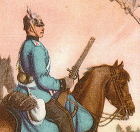I was reading this week about Day of the Dead, the Mexican holiday, and ran across the term pizza effect. The article I was reading explained that the James Bond movie "Spectre" had a scene that was set during a Day of the Dead parade. That parade was a Hollywood invention for the movie script; there was no tradition of Day of the Dead parades.
Here's the thing, though: according to the article, ever since that movie came out, parades have become a part of Day of the Dead. This was the pizza effect in action: a tradition is exported from a culture and then re-imported in a new way. It's a form of cultural borrowing or cultural influence, with the twist that a culture is borrowing back something that started in its own culture.
 The name pizza effect refers to actual pizza. Pizza was an Italian dish (pizza is a Neapolitan word) that was imported to the United States. In the US, the simple pie transformed into something much more elaborate, which was then exported—including back to Italy. (At least, that's a story for the how pizza effect got its name; whether pizza made a round trip in exactly this way is probably not important.)
The name pizza effect refers to actual pizza. Pizza was an Italian dish (pizza is a Neapolitan word) that was imported to the United States. In the US, the simple pie transformed into something much more elaborate, which was then exported—including back to Italy. (At least, that's a story for the how pizza effect got its name; whether pizza made a round trip in exactly this way is probably not important.)
One often reads about the pizza effect—perhaps surprisingly?—in terms of religion. I suppose the Day of the Dead example is a minor version of that. I also found references to it in a discussion of Hinduism and in a book called The World's Religions. There are examples of the pizza effect with words, sort of. One example is the word guard, which we got from French, but which had borrowed it from the Germanic word ward (weard in Old English). Maybe you could say that the musical British Invasion of the 1960s that brought (originally American) blues music to white American audiences is another version of the pizza effect.
The phrase pizza effect was coined in the 1970s, but we'd have to assume that "re-enculturation" (another term for the pizza effect) has probably been in effect for as long as there have been cultures to borrow from.
On the origins front this week, a word popped up when I was reading about olde-tyme military stuff. Why were certain types of cavalry soldiers called dragoons? (I bet that people who write or edit historical fiction know all about this.)
 Dragoons were not just mounted on horses; they also were armed with handguns. These were pretty heavy weapons—as one page puts it, they were smaller versions of a blunderbuss. Here's the fun part: these handguns were called dragons. I find two stories for why the guns got this name. One story is that the hammer on the gun was shaped like a dragon. The more interesting story is that the gun "breathed fire."
Dragoons were not just mounted on horses; they also were armed with handguns. These were pretty heavy weapons—as one page puts it, they were smaller versions of a blunderbuss. Here's the fun part: these handguns were called dragons. I find two stories for why the guns got this name. One story is that the hammer on the gun was shaped like a dragon. The more interesting story is that the gun "breathed fire."
The soldiers who carried these "dragons" became (in French) dragoons, and eventually the word applied to any type of horse-mounted, gun-bearing troop. The noun spawned the verb to dragoon [into], "to compel," which originally referred to the actions of French troops who were sent to make trouble for Protestants.
I suppose the same naming process gave us lancers, carbineers, and even archers. But somehow those names don't seem as evocative as soldiers with their fire-breathing weapons.
Like this? Read all the Friday words.